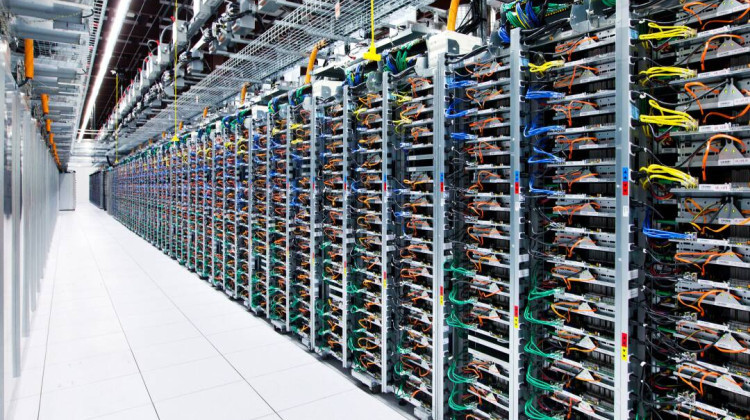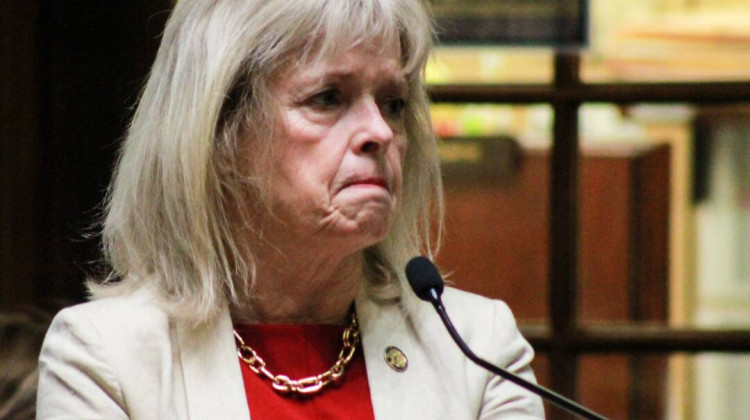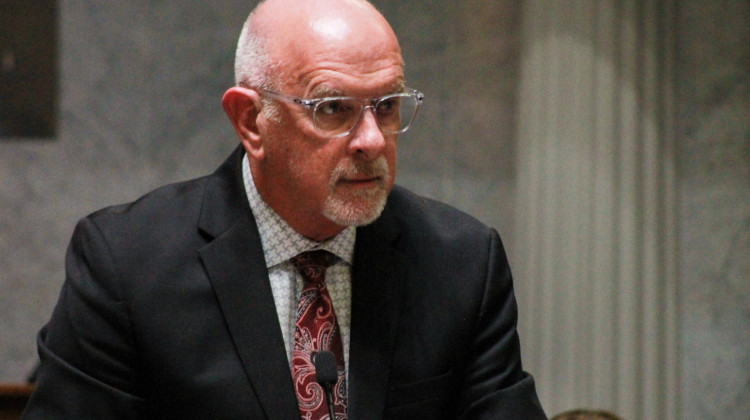
A crew with the Utilities District of Western Indiana REMC does a maintenance trim on trees.
Devan Ridgway/WTIUFour years ago, Indiana formed a task force to come up with a statewide energy plan as the country transitions to more renewable energy and new technologies. Now a state House bill, HB 1007, aims to do just that.
The bill cuts the amount of power utilities can buy from the grid during peak demand in half. That means they’d have to show they can generate about 85 percent of their energy themselves or from contracts with other companies.
The bill’s author, Rep. Ed Soliday (R-Valparaiso), said grid operators are concerned the U.S. could face more rolling blackouts as utilities rely more on the grid.
“They said everyone is buying and no one is selling," he said.
Right now, that shouldn't be a difficult goal for utilities to achieve. The Indiana Energy Association said Indiana utilities generate or contract out most of their power anyway and that the bill wouldn’t change utilities' plans to transition to more renewable energy.
The bill also said the state agency that oversees utilities — the Indiana Utility Regulatory Commission — has to consider five things in most of its decisions: reliability, affordability, resiliency, stability and environmental sustainability.
Join the conversation and sign up for the Indiana Two-Way. Text "Indiana" to 73224. Your comments and questions in response to our weekly text help us find the answers you need on statewide issues throughout the legislative session. And follow along with our bill tracker.
Delaney Barber with the Hoosier Environmental Council said the group would like to see that environmental sustainability definition expanded — factoring in things like carbon emissions, renewable resources, transmission efficiency and climate change.
“Extreme heat which leads to increased demand could lead to capacity shortfalls. And Indiana’s summer in 2022 was hotter than average and we expect that trend to continue," she said.
The bill also requires the IURC to conduct a study on the idea of basing rates on utility performance.
It passed unanimously out of committee on Tuesday and now moves on to the full House for consideration.
Contact reporter Rebecca Thiele at rthiele@iu.edu or follow her on Twitter at @beckythiele.
9(MDAyMzk1MzA4MDE2MjY3OTY1MjM5ZDJjYQ000))
 DONATE
DONATE






 Support WFYI. We can't do it without you.
Support WFYI. We can't do it without you.